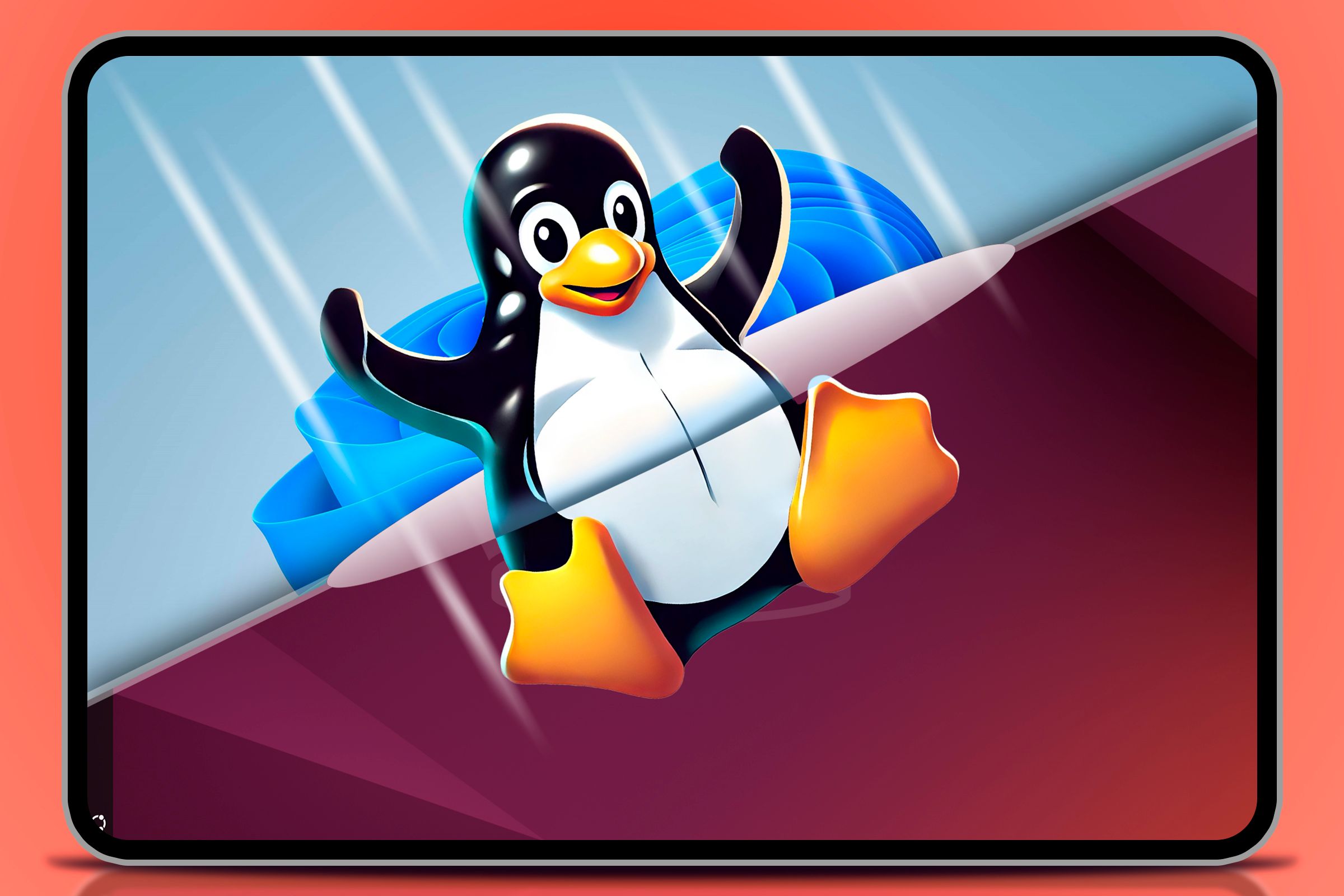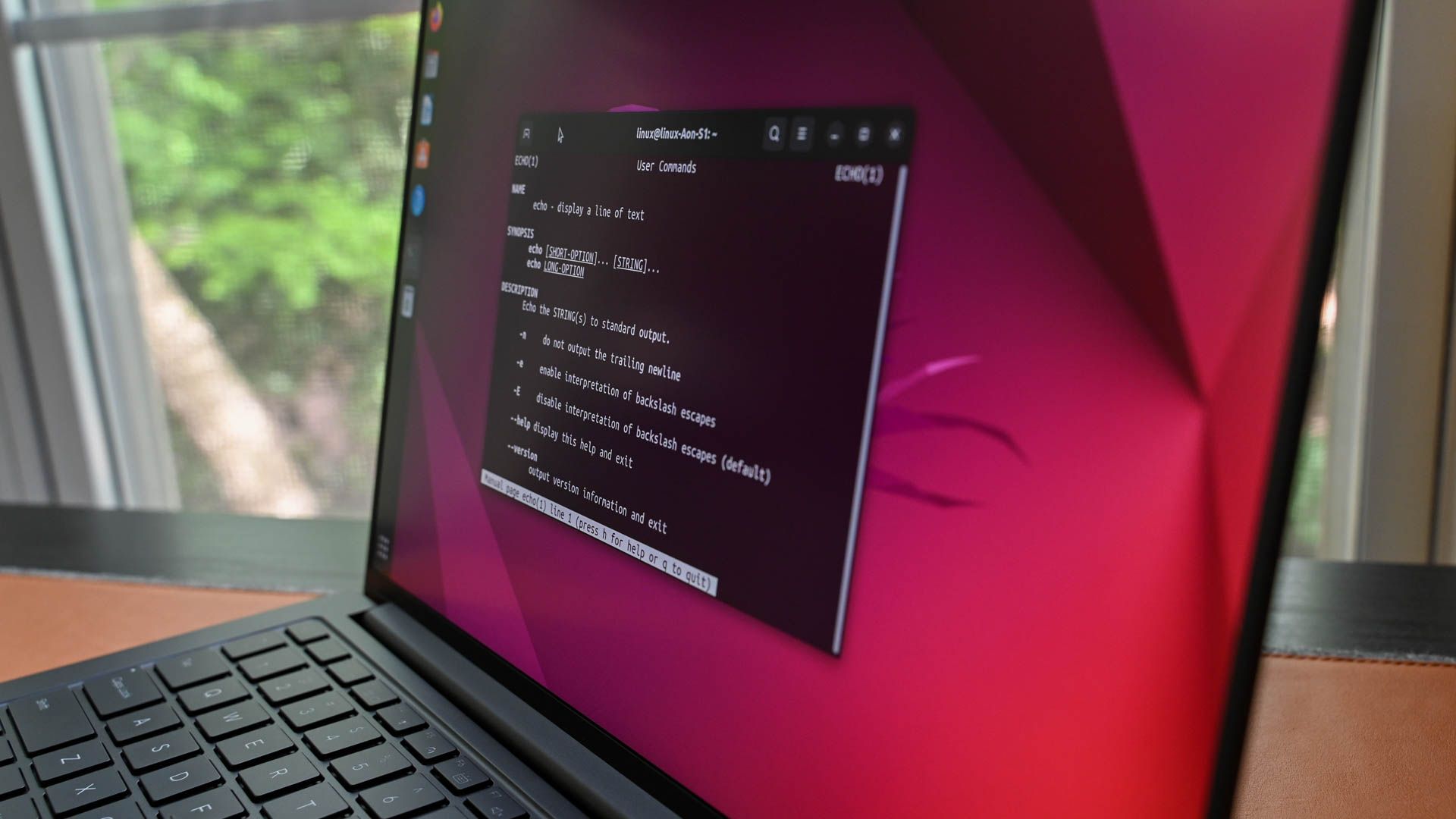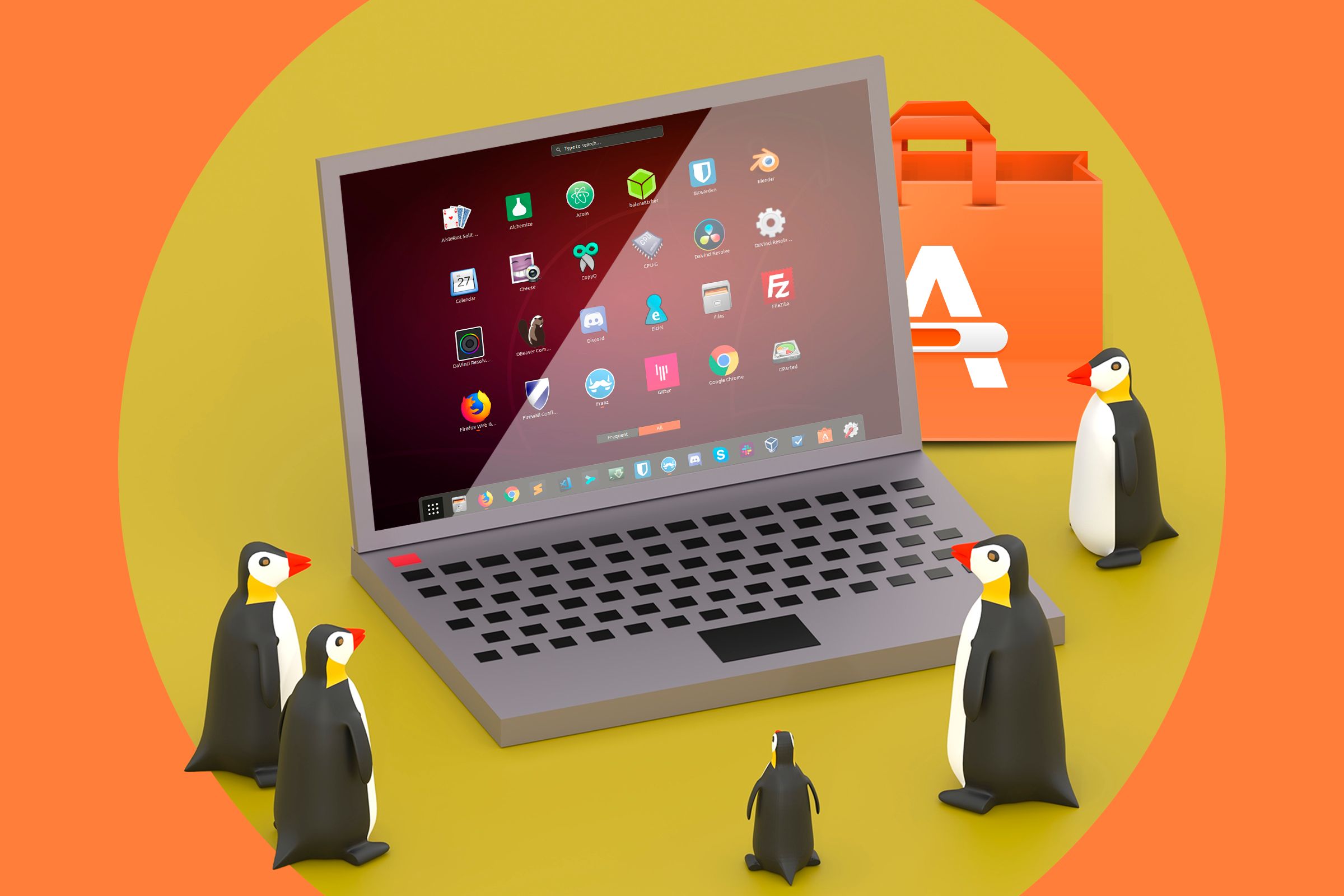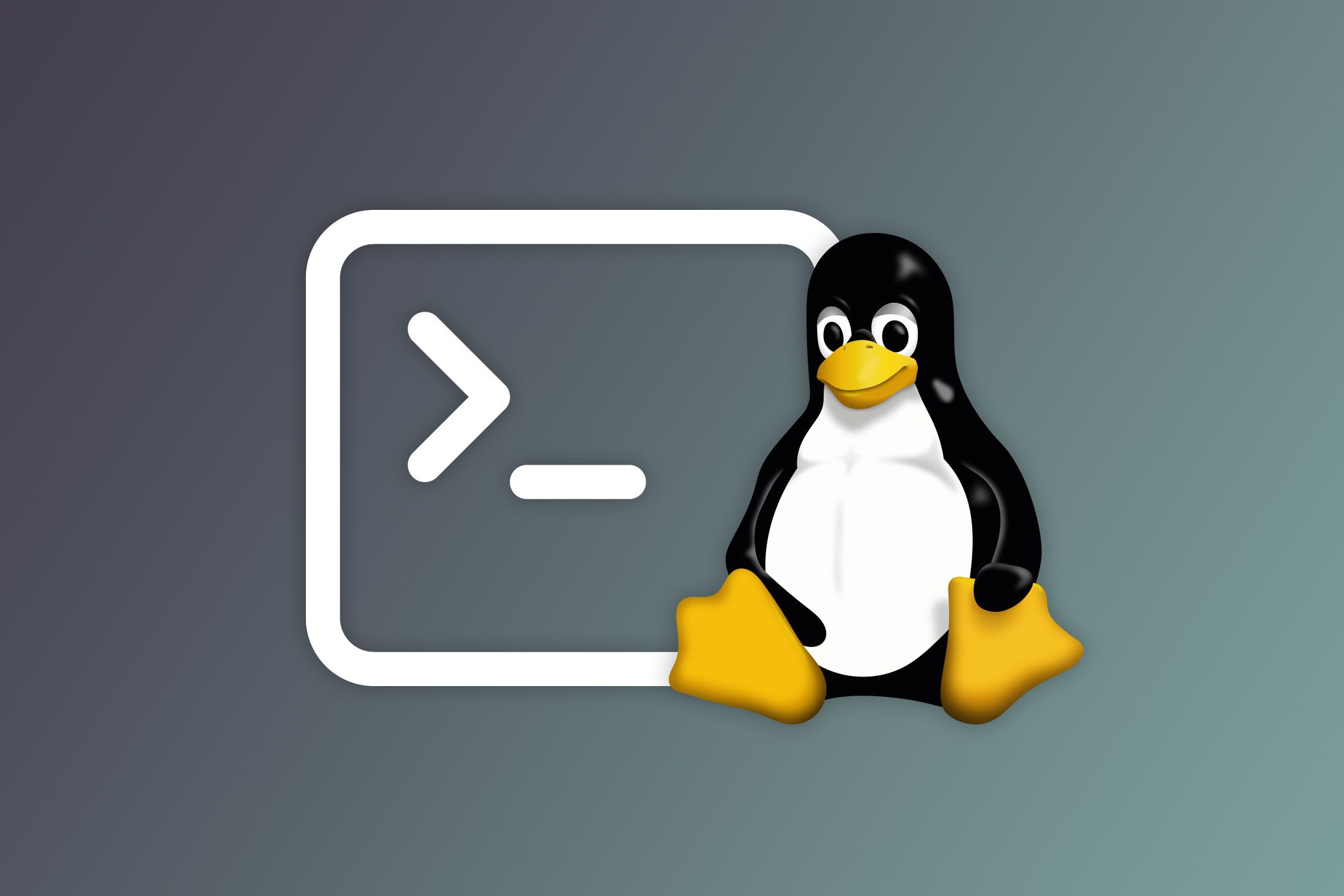The joy of using Linux is that there are so many choices. I’m someone who takes advantage of that choice, testing different Linux distros out there. However, when it comes to daily driving, I went with the flow and stuck with Ubuntu. I don’t regret it.
It Was My First Distro
Everyone has a soft spot for their first. My Linux journey started with Ubuntu 20.04. I still remember the excitement of creating my first bootable Ubuntu ISO on a USB flash drive. That live environment, orange and purple, welcomed me into the world of Linux.
Since then, I’ve tried a bunch of distros. Linux Mint, Fedora, Debian, and even some niche ones for fun. Some of them were quite impressive too. But no matter how much I enjoyed them, I always found myself coming back to Ubuntu sooner or later. Until now, I’ve used all the Long Term Support (LTS) versions and am still looking forward to the next release.
There’s something about your first distro that sticks with you. Perhaps it’s nostalgia, an emotional attachment, or just the feeling of familiarity. While I love exploring new Linux distros every now and then, when it comes to daily driving, Ubuntu feels like home.

Related
Being one of the most popular Linux distros, Ubuntu has a massive community. No matter what issue I run into, there’s probably someone who faced it before me. Better yet, they may have already posted a solution to the problem. Searching for Ubuntu-related troubleshooting guides leads me to Ask Ubuntu, Ubuntu Forums, and other communities that discuss the problems and solutions.
A large community also means help is always there. You’ll find active Ubuntu users on Reddit, Discord, and many other social media channels. So even if you don’t find any solution by web search, you can always ask for help. When Ubuntu 24.04 first arrived, it had some compatibility issues with VirtualBox. I posted about this on Reddit and a few other users also said they were having the same problem and suggested next steps.
Many companies also target Ubuntu for their products due to its large user base. Third-party apps often officially support Ubuntu first because they know it’s where most Linux users are.
Most Educational Resources Focus on Ubuntu
When you’re new to Linux, you’re bound to get stuck somewhere at some point. When I was new to Linux, one thing that made my life easier was that most tutorials, guides, videos, and courses use Ubuntu as a reference for demonstration. Whether it’s tweaking a system setting or troubleshooting an issue, I didn’t have to waste time figuring out whether the solution I found would work on my system or not.
Even today, after many years of using Linux, I get stuck sometimes or may need to look up a quick tutorial. I can be confident that when I search “how to do __ on Linux,” I’m bound to get results geared toward Ubuntu users. Whereas for other distros, I need to specifically search using that distro’s name in the query and then scroll until I find something useful.
As a new Linux user, it can get tiresome to find content suited for your distro. From that perspective, being with Ubuntu was always a plus. I could build a strong foundation which I could then transfer to other distros when needed.

Related
5 Things to Consider Before Picking Your First Linux Distro
Because your first impression is the most crucial one.
It’s Used in Schools and Offices More Than Other Distros
Windows is the most popular operating system in the desktop space, but among those who choose Linux, Ubuntu is often the default choice. In many educational institutions, you see Linux for learning or cost-saving purposes. Most of the time, it’s a flavor of Ubuntu. The reason they choose Ubuntu is again, due to its popularity.
Even in server environments, Ubuntu releases are a common sight. Software and IT firms use Linux environments a lot, and in my experience, you’ll typically find them using Ubuntu. When I interact with these setups, I don’t have to relearn a new package manager and system structure. There’s no worry about the quirks of an unfamiliar distro.
I had a university course where we had to learn Linux commands. As expected, all the computers had Ubuntu installed. Other times when I took programming and development courses, they chose Ubuntu for setting up their environment.

Related
Learn These 6 Linux Commands to Go From Beginner to Badass
These tools are not just useful, they are fun to use and can quickly add a lot to your toolbox.
It’s Still a Solid Distro to Use
Despite all the hate, debate, and controversies surrounding Ubuntu, one thing remains true. It’s one of the most reliable, well-rounded Linux distro to use.
No matter what I need a Linux system for, Ubuntu serves it right. If I want a “just works” Linux distro for home use and daily driving, Ubuntu delivers a stable and polished desktop experience. If I need a rock-solid development machine, it has extensive support for programming tools, containerization, and cloud platforms. If I’m into creative work, it has it covered.
One great strength of Ubuntu is the freedom to choose. The default GNOME desktop does the trick for most people, including me. But if that’s not to your liking, there’s an official flavor for nearly every preference. Kubuntu for KDE lovers, Xubuntu for lightweight performance, Ubuntu MATE for a classic feel, and even Ubuntu Studio for multimedia creators.
Ubuntu’s LTS releases offer years of security and stability. At the same time, if I want fresher software, I can opt for interim releases or PPAs without hopping to a different distro.

Related
Why Do I Use Linux? It’s the Apps, and Here Are 7 of My Favorites
The best apps for GNU are also the best apps for me.
And let’s not forget about software support. Many Linux applications are either built with Ubuntu in mind or tested extensively on it. Whether it’s proprietary software, open-source tools, or video games, Ubuntu tends to be among the first distros developers consider.
At the end of the day, it’s not only about nostalgia. I come back to Ubuntu because it’s still one of the best options out there. It’s practical, well-supported, and gets the job done, no matter what I throw at it.
Objectively speaking, there is perhaps no perfect Linux distro or the best one. But if you’re new to Linux and don’t know which distro is right for you, I can confidently suggest Ubuntu. If you have just set up Ubuntu, try to install some essential software.





